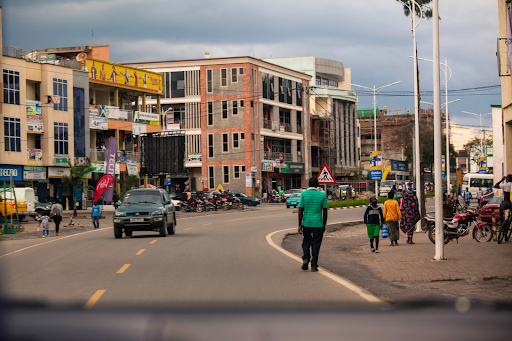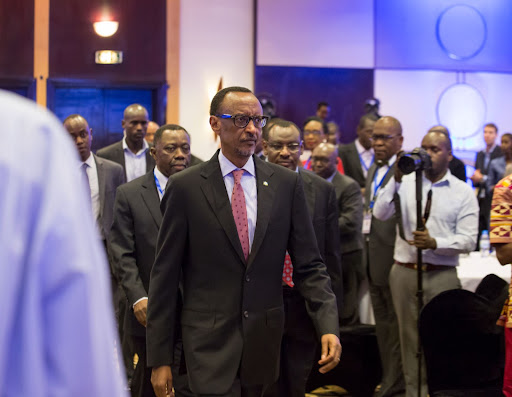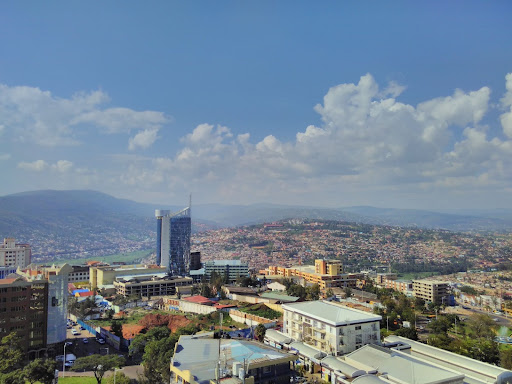For 100 days in 1994, Rwanda’s past turned upside down. Following a three-year-long civil war and disputed plane crash, decades of ethnic tensions escalated into genocide. As the Hutu majority killed nearly 800,000 Tutsi, scars stretched across the nation’s landscape.
“I lived like a wild animal,” said survivor Hyppolite Ntigurirwa. After the plane crash killed Rwanda’s Hutu president, the absence of central authority handed violence to the people themselves. Ntigurirwa, who was seven at the time, had to run from his own neighbors.
Meanwhile, the international community stayed on the sidelines. Major powers at the United Nations discouraged intervention and chose to focus on their own national interests instead. Journalists steered away from covering civilian deaths and designated the genocide a “civil war.” A failure to act, coupled with a misguided understanding of African conflicts, fueled Hutu atrocities and mass civilian deaths.
UN peacekeeping general Roméo Dallaire posed the following question a decade later: “Are all humans human, or are some humans more human than others?” The world didn’t speak in 1994, but by watching, it had already answered.
As friend turned on friend and family turned on family, it seemed as though Rwanda would wrestle with hatred forever. Now, after 30 years of recovery and reconciliation, Rwanda is considered Africa’s success story — but its scars remain.
Rwanda’s Peacebuilding Palette
The fourth-smallest country in continental Africa, Rwanda is nested among the Great Rift Valley and its Great Lakes. Kigali, its capital, is home to ever-expanding restaurant streets, luxury resorts, and technology hubs. With public opinion still overwhelmingly associating the nation with its genocide, each stride toward a new Rwanda is intentional and optimistic.
In a 2004 study, British researcher Dan Smith defined peacebuilding as a process that targets the underlying conditions necessary for development and post-conflict reconstruction. It employs a wide array of socioeconomic and political instruments, ranging from “discreet, chronologically limited activities” to “diplomatic initiatives and military operations.” In Rwanda, however, the role of peace promotion and economic development has been shouldered by businesses and the tourism industry.
At the turn of the new millennium, the Rwandan government strategized. As it created new government agencies and set goals to reach visitor quotas, the number of arrivals rose. Private companies began to invest in tourism infrastructure and facilities, successfully revamping the industry. In 2007, tourism became the largest foreign contributor to the Rwandan economy and added $42.3 million USD in international receipts, more than a 200% increase from three years prior.
More importantly, Rwanda’s tourism efforts have reshaped the perception of insecurity and conflict. Life expectancy grew from 27 years in 1994 to 68 years in 2018, GDP growth soared to 9%, and in 2004, Rwanda became the first country in the world to outlaw plastic bags. The quality of life increased, with primary school enrollment at 98% and a universal healthcare system that covered over 90% of the population.

“Back in 2013, Rwanda was a connecting destination, known for its genocide and mountain gorillas,” said Uwase (Annie) Anuarithe, Rwanda’s first female tour guide. “Now, it is a standalone destination.”
With over 60% of the country’s population born after the genocide, young individuals and businesses alike have shaped a modern, creative culture that deems Rwanda a global tourist destination. Their marketing strategy involves Visit Rwanda soccer partnerships, mountain gorilla national parks, and small organic coffee farms. Kigali’s pristine streets have contributed to Rwanda’s longstanding ranking as the cleanest country in Africa.
While large-scale tourism campaigns like Visit Rwanda and soccer partnerships have put Rwanda’s name onto the map, Anuarithe observed how tourists left Rwanda with a new understanding of what the country is really like.
“Our guests became our ambassadors,” she said. “Those who visit leave the country with trust that the country is safe, and encourage others to visit as well.”
When Debra Kamin, an award-winning travel journalist for The New York Times, traveled to Rwanda in 2017, she found that Rwanda’s ability to rebuild wasn’t just a business model or a venture project. Rather, it came from its willingness to talk about its past.
“I realized that a lot of Western media had failed to properly understand what modern, current Rwanda is like,” she said. “When I said to the Times, ‘I think we should write a tourism article about Rwanda,’ it had not been on their radar at all.”
After the genocide, speaking about ethnicity became taboo. Because the Hutu and Tutsi tribes had distinct physical traits that indicated their ethnic background, the easiest solution seemed to be silence.
Discourse, however, was vital. “Genocide views people not as humans, but as a specific ethnic background that becomes correlated with horrific analogies,” said Kamin, who studied trauma theory in graduate school. “When we bring in ethnic divisions and tribalism — which have been part of our history throughout human evolution — it becomes easy to see each other through these binary terms.” During the genocide, for example, because Tutsi people were often much taller and thinner than their Hutu counterparts, radio broadcasters spread hateful rhetoric urging Hutus to “cut down the tall trees.”

In a criminal justice system where the very people meant to help the country heal “were as shell-shocked as everyone else,” according to Kamin’s 2018 TEDx Talk about Rwanda’s recovery, progress took place in the local communities themselves. The government promoted restorative justice through the Gacaca court system, a traditional pre-colonial “town forum” where perpetrators spoke with victims face-to-face to seek forgiveness. Even though community-elected judges issued different levels of punishment accordingly, the key value in Gacaca hearings laid in the opportunity to reconcile.
“I think it worked in Rwanda, because everyone did it together,” Kamin continued. “They managed, somehow, to get past the initial reaction and create a higher level of compassion, understanding, and forward-thinking progress.”
But Rwanda is more than an impressive success story. Looking past internal policies, it can also serve as a development model for other nations. Since European powers drew state boundaries across Africa, ethnic divisions have persisted for decades and become a tool for political leaders to mobilize support. Rwanda borders South Sudan and the Congo — two unstable countries on the continent — and its development reinforces the idea that social transformation is a precondition to economic and infrastructural change.
“Yes, it is taboo to ask someone their ethnic background,” said Kamin. “But it is also taboo to keep silent.”
Miracle or Mirage?
Tarnished by its authoritarian regime, Rwanda’s narrative is not yet fully rewritten. This September 2023, Rwandan president Paul Kagame announced his election bid for the next presidential term, stating that “what the West thinks is not my problem.”
After being elected president in 2000, a 2015 constitutional amendment rendered Kagame eligible to stay in office for another decade. During the last election in 2017, he won 98.63% of the vote — not because of political popularity, but due to the lack of opposition. His opponents are regularly subject to threats, attacks, or even mysterious disappearances.

Aside from political opposition, Kagame’s administration has also imprisoned other dissidents. Paul Rusesabagina, who has been in the media spotlight for years after sheltering 1,268 Hutu and Tutsi refugees in his hotel during the genocide, criticized repressive government policies and subsequently faced a 25-year prison sentence for “terrorism charges.” Rwandan correctional services denied Rusesabagina, who was 66 at the time and in poor health, access to food, water, and medicine. He was not released until this past March 2023.
But Hyppolite Ntigurirwa, now an author and activist, emphasized that the country is more than its government.
“As someone who studied sociology and continues to advocate for peace, I consider things in context,” he said. “And sometimes, the news and social media can take Rwanda’s issues out of context.”
Before Kagame, Rwanda’s last regime was before the genocide: a minority-controlled Tutsi administration. Kagame rose to power when he fought with the Rwandan Patriotic Front, or RPF, during the 1990 civil war and took control after its previous leader’s death. To this day, Rwanda has only seen four presidents.
“In any society, we can find cases of injustice and flawed administration,” said Ntigurirwa. “But to put the blame on the country itself is too generalizing.”
When compared with the rest of the world, Rwanda’s regime seems completely unacceptable — but within the country, its progress has made Kagame a liberator. From the Rwandan viewpoint, his policies have significantly redefined the country, from ensuring clean streets to instating vaccinations for newborns. A 2019 Al Jazeera article deemed his initiatives “human rights in practice.”
It isn’t easy to govern a post-genocide society that many once labeled a failed state. Kagame’s presidency (and likely that of his successors) is characterized by a commitment to promote ethnic unity and prevent any event like 1994. The Western world still grapples with this kind of national history — and, in turn, fails to fully understand and empathize with it.
“Rwanda isn’t a perfect country,” said Kamin. “They have more work to do. But that doesn’t take away from all that they did already.”
With public opinion still overwhelmingly associating the nation with its genocide, each stride toward a new Rwanda is intentional and optimistic.

